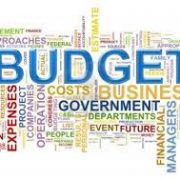Autumn Statement Summary 2022
On 17th November, Chancellor Jeremy Hunt announced the Autumn Statement 2022, which was the third fiscal statement this year.
To help digest the main areas covered in the Autumn Statement, we have separated the significant points into those which have been frozen and those which have changed.
Freezes:
- Basic rate of income tax to remain at 20% and additional rate at 45% for 2023/24
- Most tax rate bands frozen at current levels until 5 April 2028
- No changes announced to pension tax reliefs
- Inheritance tax thresholds also frozen until 5 April 2028
- VAT registration threshold frozen at £85,000 for two more years, to 31 March 2026
Changes:
- 45% rate will apply to income above £125,140 in 2023/24
- Dividend income and capital gains to be more heavily taxed from 2023/24
- Corporation tax rate increase to 25% from 1 April 2023 restored
- SME R&D Scheme rate changes to bring more in line with RDEC Relief
- Business Rate changes and targeted reliefs announced for 2023/24
For further details on these key areas, and to view our full summary of the Autumn Statement 2022, click the link below to download our summary.
If you have any questions relating to any of the areas within the Autumn Statement, please contact us via our contact page.
0


